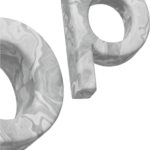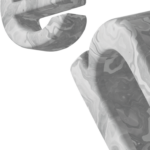

Set up your shop
Manage my administrative procedures

When does a small retail store pay tax in the UK?
30 September 2022
Small business owners have to deal with a number of issues and problems when they are just starting out. One of the most critical issues to come to terms with is what small business tax you will have to pay and when you will have to pay it.
There are many tax rules in the UK relating to small retail businesses. It can be complicated for new business owners to make sense of what rules apply to their situation and what type of tax they actually have to pay.
Not staying on top of your tax obligations could land you in hot water with Her Majesty’s Revenue and Customs (HMRC). You might wind up having to pay back taxes or penalties or you may not be claiming all the refunds and small business tax relief you are entitled to. Either way, retailers require a good understanding of what taxes they need to be paying.
This article acts as a guide to assist small retail business owners in coming to terms with their tax obligations. You can use the information below as a quick overview of what the business taxes are in the UK and if any of these will apply to you and your business.
Summary
- What taxes do small businesses pay in the UK?
- Corporation tax
- Value Added Tax (VAT)
- Business rates
- National Insurance
- Capital Gains Tax (CGT)
- Dividend tax of your retail store
- Income tax
- Capital allowances
- When do you have to pay small business tax?
- Where to find help on paying small business tax?
- FAQs
What taxes do small businesses pay in the UK?
There are various taxes that small business owners are obligated to pay if they are running a retail store in the UK. The exact types of taxes that are due are determined by what business structure you have set your business up as. Other factors impact your taxes, such as whether or not you have employees, if you are paid a salary by a board, how many assets your business has, and what type of premises you have.
Your business will be taxed on the profits that it makes each year after losses and expenses. The method by which this happens correlates directly to how you have set up the business. There are different tax rates applicable if you are trading as a company, partnership, or a sole trader.
In general, there are five main small business taxes in the UK:
However, a retail business owner may also be liable for other types of tax, such as:
Additionally, some small business owners can lower the amount of tax they are able to pay by claiming capital allowances on their tax returns.
We will go through each of these forms of tax for small businesses and provide you with a short explanation. It is always advisable, however, to seek advice and assistance from a professional small business tax accountant if you have any questions about your tax obligations.
Corporation tax
If you have set your business up as a company, then you will be liable to pay corporation tax. Corporation tax rates are only applicable to companies, they do not apply to sole traders or partnerships.
Corporation tax is calculated on the profits of a business after salaries for employees and any business expenses have been deducted but before any dividends for shareholders have been paid. Tax must be paid on all profits that a company has generated, there is no personal allowance applicable so a company must start to pay ta as soon as it starts making profits.
The corporation tax rate in the UK at present is 19%. If a company makes profits over £250,000 in any one tax year, the rate increases to 25%.
Knowing when your corporation tax is due can be difficult. A company must submit a company tax return (a CT600 form) annually to HMRC 12 months from the end of the accounting period. However, corporation tax is due to be paid nine months and one day after the retail business’s accounting period finishes. It is advisable, therefore, to always complete your company tax return early.
It is the responsibility of the company to declare how much tax it should pay. HMRC will not assist or advise you. Failure to declare tax, failure to pay on time, or providing false information all carry heavy financial penalties.
Value Added Tax (VAT)
Value Added Tax (VAT) must be paid by all types of businesses. It makes no difference if you are registered as a company, operate as a sole trader, or are in a partnership. If your business is making more than £85,000 of sales that attract VAT, you will need to register for VAT with HMRC. If you make less than this amount, you won’t be liable for VAT payments.
So, what is VAT? VAT is a tax that is added to the majority of goods and services sold in the UK. Most goods and services attract a 20% rate of VAT, although some have a reduced rate of 5%, and others are exempt. It is a good idea to check the HMRC website for information on what goods and services fall under what VAT category.
If your business needs to be registered for VAT, you will have to add VAT on top of the retail price of any item or service you sell. The VAT needs to be collected and paid to HMRC on a quarterly basis. VAT returns must be submitted 37 days after the end of the quarter. A business can also claim back the amount of VAT it spends on goods and services.
Business rates
Do you operate your business from a building other than your home? If so, you will probably be liable to pay business rates. Most businesses that do not operate out of a domestic building will need to pay business rates. Business rates are charged on most properties that are not used for domestic purposes. They are applicable to shops, offices and other business premises.
Like council tax, business rates are determined by and issued by local authorities. These statements are usually sent out during the months of February and March. These bills will show what you have to pay for the next tax year, which starts on 1st April.
The amount of business rates you will need to pay is calculated depending on the ‘rateable value’ of your business property. This is basically the market value of the building. If the rateable value of your property is less than £15,000 and you only operate from one building, then you may be eligible for small business tax relief. No business rates are due for any property with a rateable value of less than £12,000. For properties between £12,001 and £15,000, the rate reduces from 100% to zero. A property that is worth £14,000 will get relief of 33%from its business rates, for example. Contact your local council to apply for small business tax relief.
It is worth noting that some people who operate their business from home will be liable for business rates. If you employ staff who work from your home, if you sell goods or services to people who visit your home, if you have converted parts of your home into working spaces, or if your property has a commercial part (for instance, a shopfront with living quarters above it), you will need to pay business rates.
Business rates are usually paid in 10 instalments throughout a 12-month period.
National Insurance
Despite not being strictly defined as a tax, National Insurance is still money that is paid to the UK government, so many business owners think of it as a tax.
If you employ staff, your business will need to pay Employers’ National Insurance. This is 15.05% for employees who earn over £12,570 per year. If your business is eligible for Employment Allowance, you may be able to reduce your Employers’ National Insurance contributions.
A sole trader will have to pay two types of National Insurance that are part of their tax self-assessment. Any sole trader with profits of less than £6,725 is not liable for National Insurance. If you earn more than £12,570 in profits from 6 July 2022 onwards, then you will be liable for Class 2 National Insurance. This rate is £3.15 per week. In this case, the business will also need to pay Class 4 contributions of 10.25% on any earnings up to £50,270. Self-employed people that earn over £50,270 are liable for Class 4 contributions of 3.25%.
Capital Gains Tax (CGT)
Capital Gains Tax (CGT) is due on anything you sell for a profit. For private individuals, this usually relates to their own possessions. Business owners will owe CGT if they sell assets, shares or their entire company.
The amount of CGT depends on your income tax status. The rates are:
- 10% for basic-rate taxpayers
- 20% for higher- and additional- rate taxpayers
If what you are selling is a property that is not your home, for example, your business premises, then the rates are 28% for higher- or additional-rate payers and 8% for basic-rate payers.
If you sell your business, you will need to deduct what you originally paid for the business from the sale price and deduct any investments you made in the business, as well as any costs associated with selling it. What remains is the gains.
You can deduct your personal capital gains allowance from this amount. Currently, this amount is £12,300 before tax. Note that a couple can combine their amounts. Please note that any capital gains count towards your income, so if you have a large amount this can push you into a higher tax bracket.
If you sell a business, you may be able to claim entrepreneurs’ relief, which provides a lower CGT rate of 10% on the first £1m of gains. You may be eligible if:
- If you are a sole trader or partner who has sold part or all of your business
- You have control of at least 5% of your company’s net assets and are selling them
- You are selling assets from your business within three years of closing it
- You have been in one of the above categories for a minimum of two years
Dividend tax of your retail store
Limited company shareholders often pay themselves in dividends. These dividends attract dividend tax after the first £2,000. The amount of dividend tax you have to pay depends on your tax band. For the 2022-23 period, dividend tax rates will be:
- 8.75% for basic-rate taxpayers
- 33.75% for higher-rate taxpayers
- 39.35% for additional-rate taxpayers
If dividends are your sole income, you can earn up to the £12,570 personal allowance threshold as well as the £2,000 dividend allowance before any dividend tax comes due.
Income tax
Income tax is only for private individuals, so most retail business owners won’t need to pay income tax on their business. However, if a business owner pays themselves a wage that is more than the personal allowance amount of £12,570, then they will be liable for income tax. What tax band you are in determines the amount of income tax you should pay.
Capital allowances
Capital allowances can be claimed if you have bought tools, equipment, vehicles or machinery for use in your business. The costs involved in purchasing these items can be dedicated from your profits. This should lower the amount of small business tax you are liable for. Sole traders can make these claims in their tax returns. Partners claim via a partnership tax return. Limited companies in turn use their company tax return to make capital allowance claims.
When do you have to pay small business tax?
- Currently, the tax year runs from 6th April of the current year to 5th April of the preceding year
- The self-assessment deadline is the end of January each year
- VAT returns must be submitted on a quarterly basis
- Business rates are due throughout the year
- Corporation tax is paid nine months and one day after the business’s accounting period finishes
Where to find help on paying small business tax?
Dealing with tax issues can be complex. Making mistakes when it comes to tax matters can have costly consequences for you and your business. To avoid these types of issues, many retailers use a small business tax accountant or a digital platform to help them deal with their taxes. A qualified small business tax accountant can assist in calculating your business taxes and ensure that the business gets all the rebates and deductions it is entitled to. You can also contact HMRC directly online for assistance regarding any business tax that you may be obligated to pay.
If you need guidance in starting up a small retail business in the UK, then talk to the experts at Ankorstore. Our Ankorstart program is available online, is totally free and non-binding and designed to provide entrepreneurs with the advice and support they need. For any small business owners who are just starting out, the Ankorstore program can be an invaluable resource.
FAQs
What are the main types of small business tax in the UK?
There are five main types of small business taxes in the UK:
- Corporation tax
- Value Added Tax (VAT)
- Business rates
- National Insurance
- Capital Gains Tax (CGT)
However, some business owners may also be liable for income tax and dividend tax.
What can small retail business owners do to lower their tax payments?
To lower your tax burden, you can apply for relief schemes such as entrepreneurs’ relief. You can also in some cases use your personal allowance to lower the tax you have to pay. If you have bought any type of tools, equipment or machinery for your business, you can lower your tax liability by claiming these as capital allowances.
Do I need a small business tax accountant?
While many business owners handle all their tax affairs on their own, a small business tax accountant can ensure that you file taxes correctly and get all the rebates you are entitled to. An accountant can assist you with registering as self-employed, complete a VAT registration, help you to manage corporation tax and calculate tax on capital gains.
Are there penalties for not paying small business tax on time?
Yes. If you file incorrect information, fail to pay tax on time, or file your tax return late, then HMRC can impose significant financial penalties.
Related posts "Manage my administrative procedures"

Do you want to know how self-employment tax works? Do you have questions about your tax limit, types of taxes, self-assessment forms, and tax return filing? The following article is a quick guide to help you deeply understand self-employment tax rates and address other tax concerns

Ankorstart experts share some tips on how to produce a purchase order to streamline business practices, manage finances, and ensure to have enough stock.

Ankorstart experts explain safety guidelines for a retail store, identifying potential risks and providing insight on how to avoid injuries through the implementation of security policies.

Learn thanks to the Ankorstart experts how to protect your brand and what a trademark is


